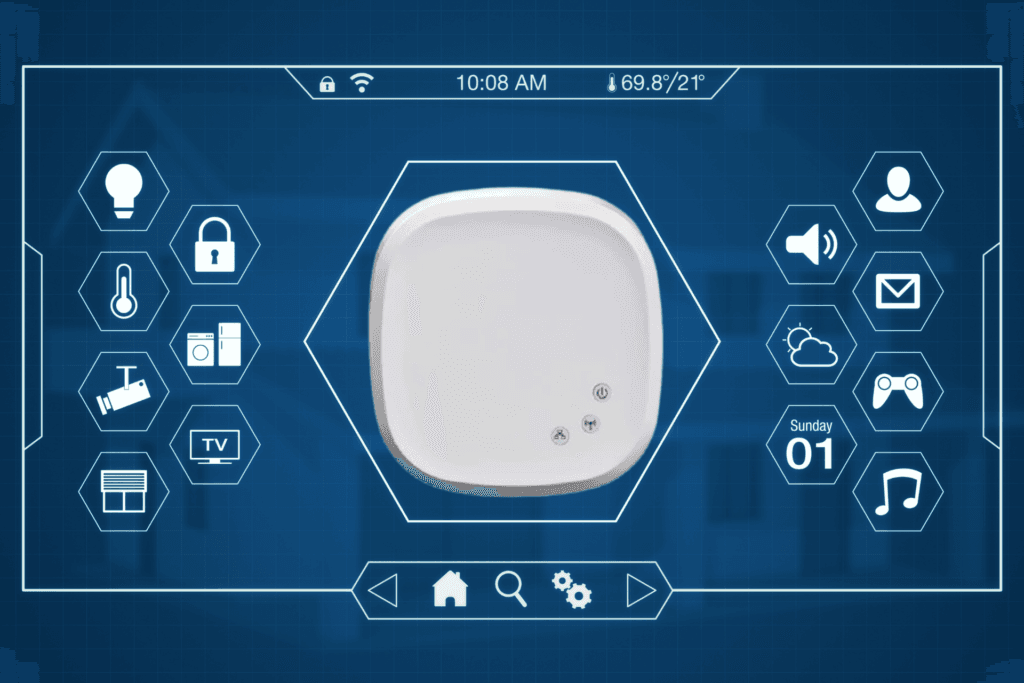Your Home's Brain: Simplify Life with a Smart Hub

The Heart of Your Smart Home: Connecting Life with Ease
As home automation grows, the need for easy connectivity across devices increases. This is where Smart Home Hubs come in. These hubs act as the brain of your smart home, enabling seamless communication between gadgets. Whether you’re starting out or enhancing an existing setup, a hub ties everything together efficiently. We’ll explore the main reasons your home needs a smart hub and the benefits of having one.
Key Needs for Smart Home Hubs:
1. Central Control of Devices: A smart hub acts as the central command for all your smart devices, eliminating the need for multiple apps to control lights, locks, thermostats, and more.
2. Interoperability: Smart hubs connect devices from different brands, like thermostats and security cameras, allowing them to work together seamlessly.
3. Automation and Routines: Create automated routines like “Good Morning,” which can adjust lights, thermostat, and even start your coffee maker. This brings convenience and energy savings.
4. Remote Access: Many hubs allow remote control of your devices, such as locks and lights, for security and convenience while away.
5. Future-Proofing: A smart hub ensures new devices can integrate easily into your system without needing extra apps, keeping your home tech up to date.
Benefits of Having a Smart Home Hub:
Simplified Control: A smart home hub allows easy control of all devices through one interface, eliminating the need for multiple apps and reducing confusion, especially for those less tech-savvy.
Smarter Device Integration: Hubs ensure all devices work in harmony, such as linking security cameras with smart locks to enhance automation.
Energy Savings: Automating routines like adjusting the thermostat when you leave or dimming lights when rooms are empty helps reduce energy consumption and lower bills.
Enhanced Security: Hubs integrate security devices to automate locking doors and activating cameras when leaving the house or going to bed, ensuring better home protection.
Scalability: Smart hubs make it easy to add new devices, ensuring your smart home grows with your needs.
Voice Control: Most hubs are compatible with Alexa, Google Assistant, or Siri, offering hands-free control of devices for added convenience.
Personalization: Customize routines like dimming lights for movie night or setting a morning routine to fit your lifestyle perfectly.
